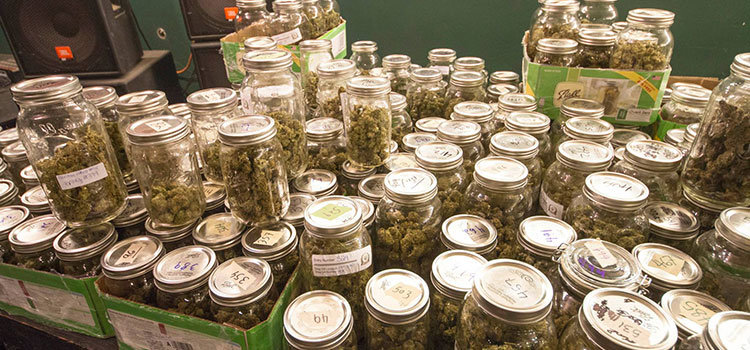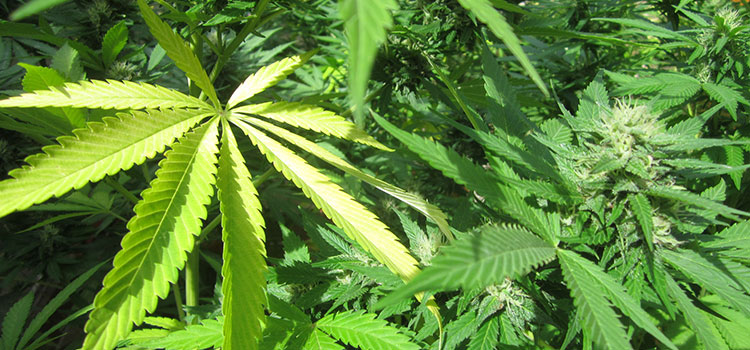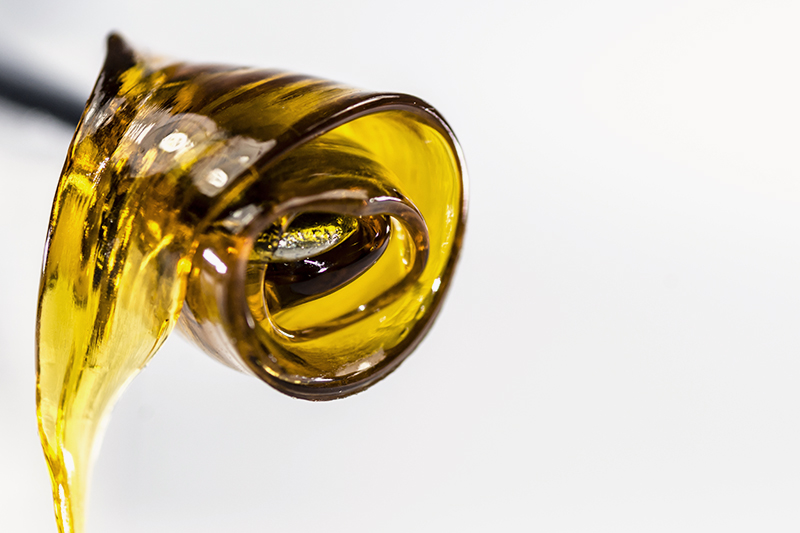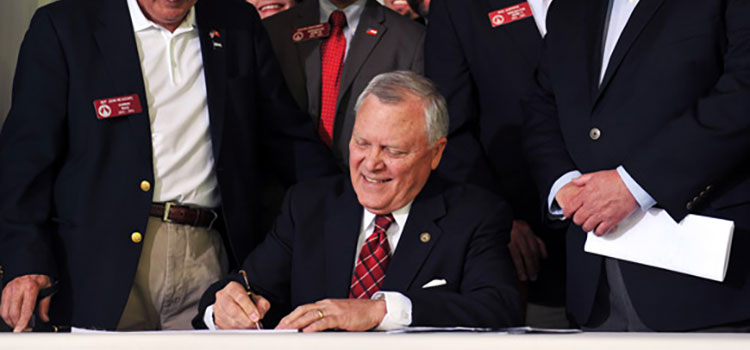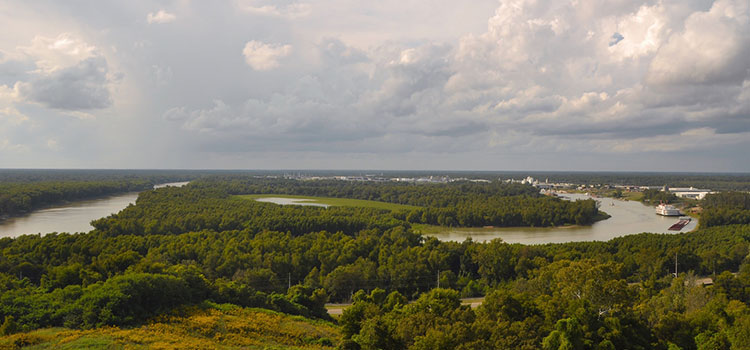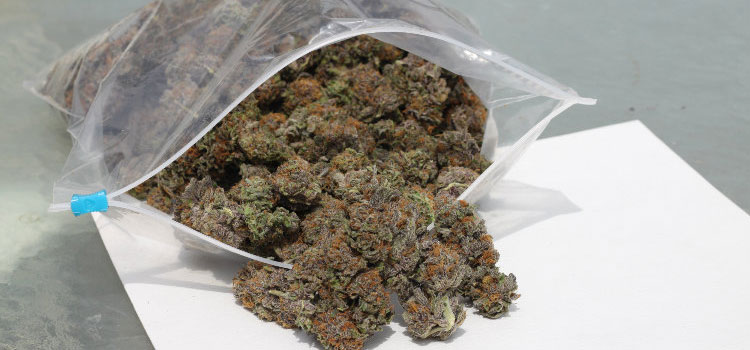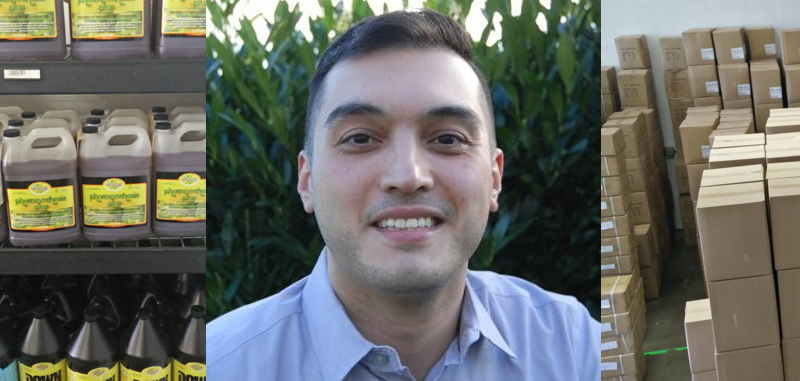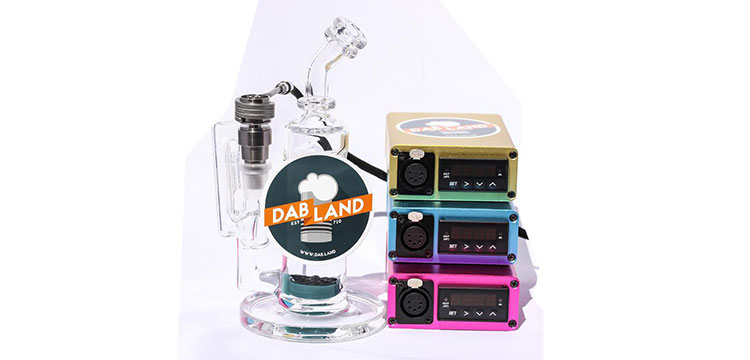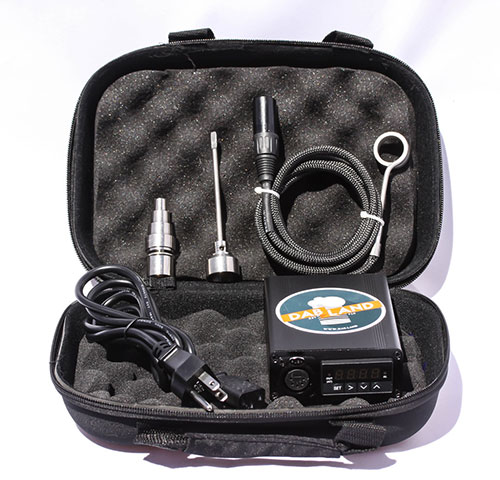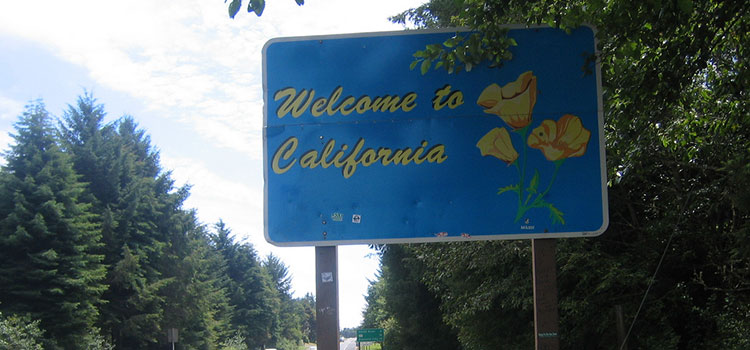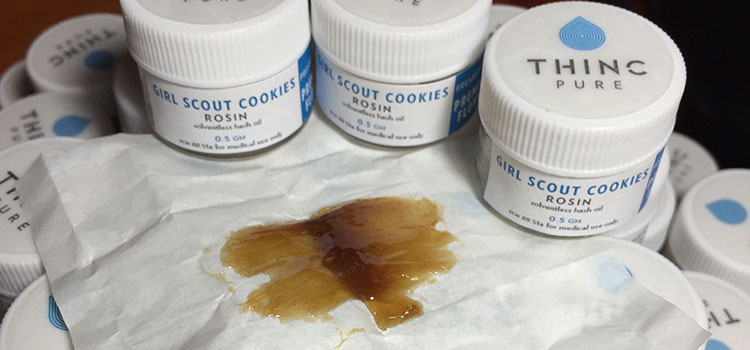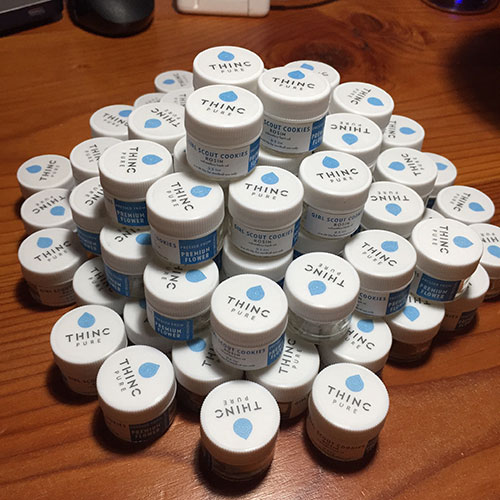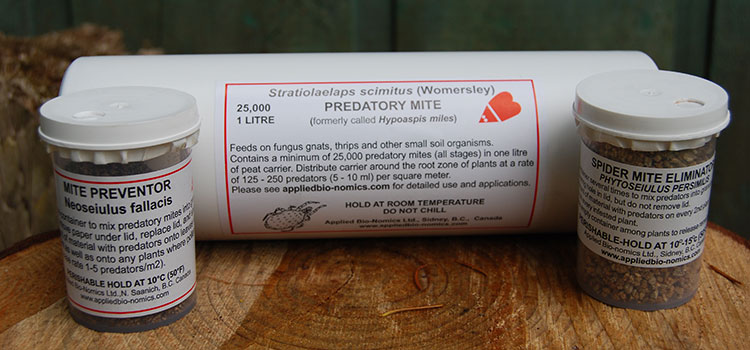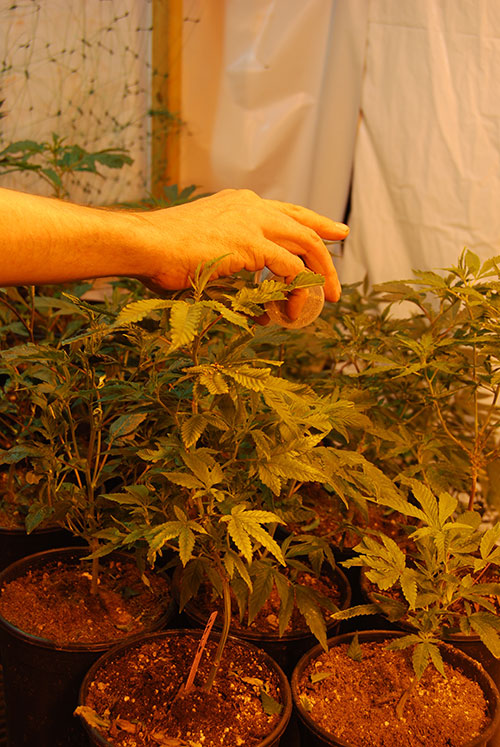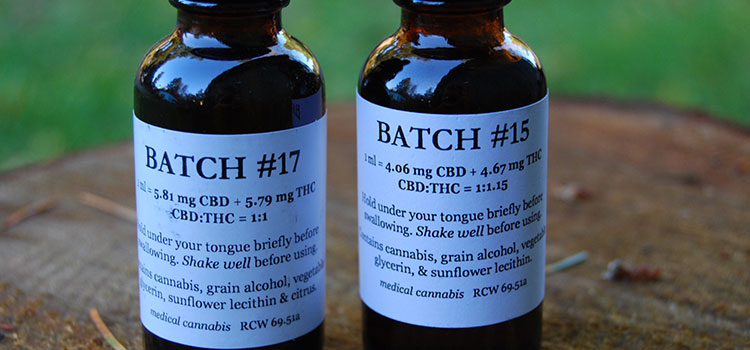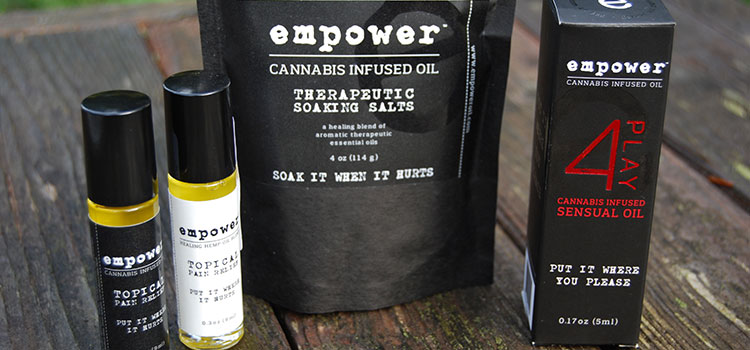Alen Nguyen is the CEO of Green Thumb Industries, one of the first B2B distributors in the cannabis industry. As more cannabis business owners transition from the grey market to the newly-regulated industry, they often find themselves facing a host of supply chain issues. In mainstream industries, there are typically dozens of distributors to choose from who offer wholesale discounts on the basic supplies needed to run one’s business. In the cannabis industry, the options can be limited. Alen Nguyen recently joined our host Shango Los for a discussion of how Green Thumb Industries keeps cannabis businesses running smoothly, how his business strategy evolved over time, and what advice he has for aspiring cannabis entrepreneurs.
Listen to the podcast below, or scroll down to read the transcript!
Subscribe to the Ganjapreneur podcast on iTunes, Stitcher, SoundCloud or Google Play.
Listen to the podcast:
Read the transcript
Shango Los: Hi there, welcome to the Ganjapreneur.com podcast. I am your host, Shango Los. The Ganjapreneur.com podcast gives us an opportunity to speak directly to entrepreneurs, cannabis growers, product developers and cannabis medicine researchers all focused on making the most of cannabis normalization. As your host I do my best to bring you original cannabis industry ideas that will ignite you’re own entrepreneurial spark and give you actual information to improve your business strategy and improve your health and the health of cannabis patients everywhere.
Today my guest is Alen Nguyen. As CEO of Green Thumb Industries, Alen oversees the leading distributor of supplies for cannabis growers, processors, and retailers. Whether it is lights, nutrients, retail packaging or traceability software, Green Thumb Industries stocks it and delivers it to cannabis businesses as they need it. Welcome Alen.
Alen Nguyen: Thanks Shango. Thanks for having me on.
Shango Los: Alen your business model is new to cannabis even though it’s been used in other industries for ages. Would you explain the service you offer for the audience and how exactly it works?
Alen Nguyen: Sure. I think you did a better job than I will but I’ll give it a crack. We’re a centralized business to business distributor for the cannabis industry. Like you mentioned, this is a model that’s literally in every other industry and the cannabis industry is no different.
In order for an industry to operate it needs supporting infrastructure and that’s primarily through distribution and supply chain management. Before cannabis was a legal commercial industry, it was supported by a retail channel because it was operating at the medical or black market level. Your medical or black market grower would go to their retail hydro store and purchase their supplies and equipment at retail prices for their operation.
Now that this is a legal cannabis business, or a legal commercial business, it needs a commercial infrastructure to support it. I use this example all the time. Chevrolet, GM, Boeing, they don’t buy their nuts and bolts for their cars and airplanes from Home Depot or Lowes. They purchase them from a commercial supplier and distributors at wholesale pricing. It’s just ludicrous to think that they would pay retail prices and have to purchase through a retail model. The cannabis business shouldn’t either.
Shango Los: I was just thinking about the old days when people would go to the hydro store and maybe park down the street because supposedly the sheriff was recording license plates and everybody was all hush, hush. “No I’m using this for my tomato plants.” This is such 180 degrees from that now that not only you’ve got a catalog of everything somebody could need and then you deliver it to them. That’s a big evolution of the industry.
Do you find that you also provide a benefit to your customers because you’re holding their inventory? I’m assuming that you do it like a grocery store would where you are shipping it to them on a regular basis so they’re only receiving the product as they need it so that they can have a smaller footprint of their shop or business themselves.
Alen Nguyen: Absolutely. The growers, primarily in Washington states, our largest customers are the growers, the cultivators. Obviously they want to maximize every square foot of their facility to be contributed towards profitability. They don’t want to have a lot of supplies hanging around and supply chain management isn’t really something they want to focus on. They’re very good at growing a great product so let us focus on supporting their business in areas that we’re really good at.
They pretty much nailed it right there. We have inventory and it’s really customer-specific inventory as well as a lot of stock inventory as well. We deliver those products to our customers so they can have just-in-time inventory. It guarantees that they don’t have a break in their supply chain because cannabis is a living plant. If you break that supply chain it starts degrading it’s quality and you lose your profitability. Like a car, if a hood doesn’t come in for supply you can just stop your production line and then put the hood on when it comes in, but cannabis will start to deteriorate so we cannot let that happen for our customers.
Shango Los: I would think that from your side, since you are the person who is stocking your warehouse first and then you are bringing that down the chain to your clients, that you’ve probably had to learn some lessons with how much of your own inventory to keep as well. Somewhere between just in time and oh my god we’ve got to stock up.
Alen Nguyen: Yeah. That is probably one of the hardest things that we’ve had to deal with. Being able to forecast is extremely difficult this early on. I’m from the aerospace industry where we know that Boeing is going to make forty-two 737s a month so we can forecast our inventory.
This industry, our customer acquisition rate coupled with the diverse products that they use, we’ve only had a very short period of time with being able to forecast that. It’s a dynamic challenge that we really focus a lot of our internal efforts on so our customers don’t have to worry about that. They don’t see a gap in their supply chain.
Shango Los: I really like the copy on your website that refers to what you do as “curating” these products. I like that because you probably save customers a lot of time by you doing the research for them and I’m sure that they will tell you, “Hey there’s this new cool thing that we’d like you to start carrying for us.” Generally speaking, you’re probably turning them on to it since you’re spending all of your time researching new goods. How do you go about doing that? How do you go about choosing and curating the products for this wide range of customers, from growers to processors to retailers?
Alen Nguyen: That’s a very good question because there’s just a plethora of products out there so we’ve taken a different approach. We actually don’t look at products directly. The way we do it is we sit back and we look at the industry from a 30,000 foot view. We look at the trends and we look at the direction that the industry is moving towards and then we focus on products and solutions that are geared towards getting people there as an evolution of the industry, if that makes any sense.
We look at the next direction that the industry is going in to and then we focus on something that is going to get people there and we become product knowledge experts on it and then we introduce it to the industry to help their business evolutionize with the industry.
Shango Los: Are the companies that you normally buy from to provide to your customers, do they pretty aggressively court you? I could imagine that people are sending you samples all the time because if you do your job right you’re essentially becoming a salesperson for them.
Alen Nguyen: Correct. At first it was very rough. When we first started out we didn’t … you know, “Who are we? Who is Green Thumb Industries?” Just another company trying to make a buck off the cannabis industry. That’s one thing that we’ve done really well is we’ve gone after really large suppliers that have really helped build our reputation in addition to theirs. Now we’re starting to see that snowball effect of people are calling us a lot more to rep their products versus us contacting others.
Shango Los: The entrepreneurs that you work with that you are providing for, people in the cannabis industry are kind of pretty skeptical sort I would say.
Alen Nguyen: Yeah that’s a nice thing.
Shango Los: People who are coming to the industry new are generally skeptical because they’re jumping into a pool that they’re unfamiliar with. Have you had the experience of really having to get over a hump of getting people to trust you? Maybe not that you’re necessarily telling them that you know what’s best for them but that they should really weigh your opinion heavily in figuring out how how to set up their supply chain for their supplies?
Alen Nguyen: Absolutely. Especially because I’m not from the cannabis industry. As kind of a new face coming in, my business partner, he’s from the cannabis industry. He’s been in the medical industry quite a while, but me being the architect at putting the business side together … it was a challenge. It was a very difficult challenge because a lot of people in this industry have deep-seeded roots with their current suppliers even though it may be retail suppliers.
What we did was we really sat and listened to the market and we listened to, we went to tons and tons of meetings in Washington, out of Washington and other areas and listened to the issues and concerns that our potential clients had and we became product experts and chased those suppliers for it. One being packaging and one being traceability. Those are fairly new to these growers, so we became product experts in them and then we just provided them with information. We provided them with information to help their businesses ease into that transition.
What’s most important is cultivating that relationship with the client and then it’s nice if a sale comes afterwards.
Shango Los: I would think that, since the industry is so new and your particular business model is pretty complex, that you probably don’t have a lot of competitors right away. You’ll eventually have them but you probably have a pretty open playing field right now don’t you?
Alen Nguyen: Yes. That’s the nice part is that a lot of the companies that are coming in are very specific in one area and we’ve had the luxury of forging really good relationships with the leaders in each vertical. Then we’re the conglomerate that glues them together and becomes product experts. You’re absolutely right there will be competitors and what we’ve tried to do to help mitigate that is really just strengthen our relationships with the top suppliers in each one of our product lines or verticals that we’re in to help grow our business at least as fast as we can before competition comes.
Shango Los: I was just thinking about how interesting your margins must be. If your customers are used to purchasing from the manufacturers and you are providing the service in the middle, it’s got to keep your margins pretty thin and so you’re probably having more success with volume than hitting a home run on every sale?
Alen Nguyen: Well that’s actually a two part question so I’ll answer the second part of that statement first is that yes we don’t run off of typical retail margins. The retail margins in most stores are about 50% and then they give them a discount based off of that. We’re taking a real wholesale approach. We provide our customers with the pricing of the product lines that we’ve developed at wholesale pricing because that’s what they deserve as a business at the volumes that they’re purchasing. That part drives the margin thing.
The other one from the manufacturers side, as I mentioned, we as a distributor, we focus on forging relationships with manufacturers and providers that do not go direct. Biotrack doesn’t do the hardware stuff that we do. Exit packaging, they don’t sell direct, they only sell through distributors. That relationship bond that we have is strengthened by that to where they know that we can deploy to the market and they can focus on what they really want to do which is make a great product.
Shango Los: That’s great, Alen. We’re going to take a short break and be right back. You are listening to the Ganjapreneur.com podcast.
Welcome back. You are listening to the Ganjapreneur.com podcast. I am your host Shango Los and our guest this week is Alen Nguyen of Green Thumb industries.
Alen before the break we were talking about how the very nature of your business model is new to cannabis and I’ve been watching your company since the very beginning as your business model evolved and changed as well. Can you talk a little bit about what your initial idea was for the business model and as the medical market became the I-502 recreational market and as those companies’ business models changed, how you had to adapt along side?
Alen Nguyen: Honestly it was horrible. What we are as a company now is literally is literally nothing to where we’re at today. We’ve done a whole 180, our name has changed and we’ve learned so much along the way.
Our original take was this, we were going to be the supply chain management of the industry. We saw a gap that these commercial businesses went from a small home grow to a large warehouse and there was going to be a huge supply chain management gap. We were like, “Oh ding. Genius, lets take this napkin note and turn it into something awesome.” What we did was, we had these supply cabinets. We put these supply cabinets out in these commercial warehouses for these growers and we had an app, we thought we were so cool. We had all this stuff.
The growers, we’d stock our inventory with all the growth supplies in these cabinets that were on site. The growers would go and scan a bar code that was in the cabinet and as they scanned the bar code they would take the product out. We would just sit back in our little offices and basically monitor their inventory, and we’d go out and deliver and replenish their cabinets once a month and we would charge them for what they used and it was just an awesome idea in terms of ideology and a business plan it was great for us.
Shango Los: It actually sounds a little bit like a hotel mini bar.
Alen Nguyen: That’s exactly what it, every time I explain it to people they’re like, “That’s it?” I’m like, “Yeah.” With one layer of technology added to it which is we can monitor it immediately. Conceptually it was awesome. There’s a company that does that now, Fastenal, they’ve built their model their model around that but execution was just horrible, it just fell on it’s face so bad. The reason was that we had so much risk in inventory that was at the customers site.
I hate to say it, as much as I love our customers, there was a lot of customers that aren’t necessarily have the highest morals and are truthful about things. Product was getting stolen, people would change products, we’d get stuck with inventory. I said, “This is crazy. We can’t do this anymore.” That was at the end of last year.
How we transitioned is, we stopped at the very beginning of this year, we said, “All right. We can’t do this anymore. Let’s bring all these cabinets back.” Which I have a warehouse full of cabinets right now. I put one in everyone’s office so they can just stuff their crap in there.
What we decided was let’s focus on something that nobody else can do and we can do much better than everybody else and the gripes and the issues. I mentioned this earlier. Then we chased Biotrack so we got the Biotrack contract and we got the exit contract for packaging and I still have two more lines to develop. Ever since we pivoted ourselves, it’s been so much better, the way we’ve built our business to become the main distributor of these leading brands.
It’s not necessarily a bad thing that we’ve changed from where we were to where we’re at today.
Shango Los: I like the idea of them having a supply closet and scanning it so that you were getting real time information on what was on their inventory so that you could provide it. Are your clients still scanning items but you’re just delivering them or have you set the scanning thing aside and now they’re sending you what we think of more as a typical order?
Alen Nguyen: We’ve replaced the scanning thing, we’ve taken back a lot of our cabinets. The system works great if it’s properly used by both sides. What we’ve done is we’ve replaced the cabinet. We just didn’t abandon the whole idea of supply chain management through technology so we just didn’t leave our customers out in the cold.
What we did was we replaced that cabinet program with something that’s a little bit more advanced and similar. We’ve created a business to business portal. This purchasing portal has a private log in and our goal and our vision is to have every cultivator, every dispensary, every retailer, to have this link saved on their desktop and they can click on there, it opens up our page, they log in and it basically has all of their inventory available. They can purchase directly from there, purchase all their supplies, and it goes out the door and it’s more like an Amazon type.
I learned one thing. From aerospace I was a business to business guy at heart. That’s just what I knew and what I did. When I came over here I was like, “Okay, we’re doing the business to business thing. This is a no brainer for me.” However, everybody that owns a business in the cannabis, I’m sorry not everybody, the majority of people that own a cannabis business now have never owned a business in their life, so their purchasing is not a business type of purchasing, it’s a consumer based purchasing mindset and I fell on my face hard when I approached it that way.
Then this business to business portal provides these people with all the business tools that they need but yet with a very Amazon consumer type feel. We’ve fixed that.
Shango Los: I was thinking about it and it probably changes your vocabulary too in how you speak to them because you maybe find yourself using more B to C vocabulary than B to B vocabulary just so that you’re providing warm customer service.
Alen Nguyen: Oh yeah. My undergrad is in electrical engineering so I’m kind of a nerd and I have a masters in business and all I did was talk to engineers in the aerospace world and we did sales that way. I have to say, talking to this demographic is a lot cooler because we can be ourselves and don’t have to worry about any kind of moral recourse. I still don’t talk about religion and I still don’t talk about politics.
Shango Los: Those are probably good choices. One of the things in your answers that I think is good point out is that the business model that you thought you were going with is not the one you ended up with and that’s happening a lot in cannabis is that people are getting in it but they have to remain flexible and that is a secret to success.
I’d also think that getting the Biotrack contract was very helpful since every cannabis business, in Washington at least, has got to have a Biotrack machine. You’re kind of like, you’re bringing them in for the Biotrack and then you send them something else. I think that’s probably a really great thing to help bring those customers originally to you.
Alen Nguyen: You got it. That was exactly why we chased it.
Shango Los: Right on. You mentioned changing the company name. Let’s talk a little bit about that because we all put a lot of emphasis into the importance of building a quality brand and there you were a couple of steps into it and then you changed it. What’s the story behind that?
Alen Nguyen: Again I’m not from this industry, so when I came up with the name we wanted to emphasize two things. We wanted to show: A) that we’re industry related and B) that is shows exactly what we do. When we started this the company was called Green Thumb Logistics and Services.
Foolish me, and I actually wished I changed it, but being a guy from outside the industry I thought being Green Thumb was pretty original but it’s actually quite horrible. Everything in this industry either has green or thumb or some play on words that’s related to cannabis in it. I wouldn’t say I’m necessarily building a brand around that because there’s a ton out there.
If I was to do things, and I changed it to Green Thumb Industries, Industries is more generalized as in we’re a distributor so we’re more general. If I had to go back I probably would not have called this Green Thumb Industries but we’ve built it around that, it’s been a long time now so if anybody’s out there listening put some serious thought into what kind of brand you’re going to be building around there because as a guy that was coming from the outside of the industry I had no idea what I was doing and that’s what I picked.
Shango Los: One thing I can give you credit for is after you changed the name your logo and the website and it all got this huge new polish to it. Whoever you had doing your graphic design, they really made the transition seem elegant. It seemed like you moved up a level.
Alen Nguyen: I’m glad it appeared elegant from the exterior because it was a nightmare interior. The website is tied to our ERP and is tied to our inventory. It was a huge … I mean it’s software so everything takes twice as long and costs twice as much.
Shango Los: Right on. Well hey, we’re going to take another short break and we’ll be right back. You’re listening to the Ganjapreneur.com podcast.
Welcome back. You are listening to the ganjapreneur.com podcast. I am your host Shango Los and our guest this week is Alen Nguyen of Green Thumb Industries.
Before the break we were talking about your supply chain and how quickly and effectively you can get the supplies from your warehouse just in time to your growers, processors, and retailers. I would think that they really save a lot of time only having one supplier to deal with as well. Historically, we need to go to one company for this and another company for something else. Your more of a warehousing approach causes them to have to do less running around town and less paperwork.
Are you finding the feedback that you’re getting from folks is that they appreciate that time savings?
Alen Nguyen: Absolutely. One of our mottoes is, focus on what you guys do really well which is grow and sell awesome cannabis, let us take care of the rest. Let us take care of operations. Having one supplier they then go to, get wholesale pricing, get all their products. If you place an order with us by 12 it ships out that same day. You’re talking get products the next day if you’re local. If you’re in another state it takes a day or two. It’s that fast because we’re getting that efficient with our operations. We really take the Amazon approach coupled with the distributor approach to this.
Shango Los: I would also think that for most of your clients who, I mean heck I guess everybody in this business is a start up entrepreneur right now, we never have enough time for anything. So any amount of time savings is a real win.
Alen Nguyen: Yeah absolutely. Like you said, these people are in startups just like we are and I know how busy it is because we’re in a start up ourselves so to have the luxury of a product knowledge expert in areas that would take you a lot of research to develop, we can come out there and basically address any questions you may have and then support you right after that. It’s a huge value to these people.
Shango Los: Another big convenience that you have in your business that your customers don’t necessarily have is that you’re not extensively regulated by the state. People pitch me business models all the time and they want me to discuss them with them and so often they are jumping into something that requires a cannabis license and so you have to get micromanaged by the state.
You on the other hand are working a business that while you interact with the state you pretty much have a free hand because selling trimming supplies and things like that is not regulated. What has your experience been with riding that edge between not having to deal with the extensive regulation but because you got the Biotrack contract and want to provide good feedback to your customers, you actually still have to work with the state.
Alen Nguyen: Correct. We don’t deal with nowhere near the kind of complexity and difficulty that a lot of our clients deal with. We can bring money in from anywhere we want, we can basically operate our business without being heavily regulated, we just have to follow state and federal laws and be morally conscious about what we do.
When we got into this my whole thing was, I was looking at this to scale. Everything I did was I want to scale. I want to make it huge. Like everybody in the cannabis industry, I want to take over the world. We have to do it methodically. Having those guidelines and restrictions makes it extremely difficult to get any kind of investment and it makes it difficult to have operations in multi-state.
For example, a grower here could have their farm here, their sales here, and if they wanted to expand to Oregon they would have to do the same thing down there and you’d have redundant operations. Whereas with us, we can have centralized hub and spoke models to where we have centralized operations in one area and then we have these spokes of distribution networks that we can scale out. We’re extremely efficient so the scalability is huge and then also the investment stuff we’re just now looking and courting investors for our expansion.
It’s kind of unfortunate that our clients for the most part can’t do it and we don’t really have to deal with the state with that at all so that’s kind of nice.
Shango Los: As you do reach out to more folks and start doing more interstate branding, are you finding that … there are the states that are already legal and normalized so it would make sense that you would have customers there but are you finding occasionally a customer will pop up in an unexpected state and you’re like, “I don’t know if they’re doing medical or if they’re doing something great but they sure are ordering a lot of nutrients.”
Alen Nguyen: We only work with businesses so our filter is this, is that we don’t sell to the public. We only sell to businesses. If you have a business license it’s fairly easy to just do some basic research on the business and if there’s anything that’s sketchy we have our moral bounds about what we’re doing.
It’s also federally illegal for us to ship, or sell anything to a state that doesn’t have legal cannabis there. We try to be very cognizant of what we’re doing in case of any recourse as well as in our moral bounds.
Shango Los: Yeah right on. That makes a lot of sense. We got mostly actually, entrepreneurs who are in our listening audience and you’ve dropped a couple good lessons that you’ve learned along the way. Let’s say that you were talking specifically to these entrepreneurs and they’re thinking about putting together a B to B business. What is a piece of advice or two that you can offer that you’ve learned yourself that you would like to share with them?
Alen Nguyen: Focus on relationships, relationships, relationships. That’s with your business partner, that’s with your suppliers, your partnerships, others outside of your network. Do not be constrained in your network at all. Reach out, travel and network like crazy. Washington is the most unique state in the way we operate and I built our business around it and I am so glad that we started doing business and I go to California every other month. I travel to Vegas, I work with a lot of people outside of it, and it’s just so eye opening about how the rest of the industry works. It’s nothing like Washington and I would have never known that.
Really cultivating those relationships, expand your network, just getting a holistic understanding of the industry and if there’s anything that I can just push through is as the founding members of your start up company make sure you have at least one business person and one operations person. When it’s just you two or your three or you four or whatever it may be and you guys are working 15-20 hours a day and it’s just you doing that, it’s going to make things so much easier.
Shango Los: That’s really solid advice and it’s also all the time that we have for today. Thanks for chatting with us Alen, it’s been really a pleasure.
Alen Nguyen: Thanks Shango, thanks for having me on.
Shango Los: You can find out more about Alen Nguyen and Green Thumb Industries on their website, greenthumbind.com.
You can find more episodes of the Ganjapreneur podcast in the podcast section at ganjapreneur.com. You can also find us on the Cannibus Radio Network website and in the Apple iTunes store.
On the ganjapreneur.com website you will find the latest cannabis news, product reviews, and cannabis jobs updated daily along with transcriptions of this podcast. You can also download the ganjapreneur.com app in iTunes and Google play. We’re also thrilled to announce that you can now find this show on the iHeartRadio network app bringing the ganjapreneur podcast to 60 million mobile devices. Do you have a company that wants to reach our national audience of cannabis enthusiasts? Email grow@ganjapreneur.com to find out how.
Thanks to Brasco as always for producing our show, I’m your host Shango Los.
